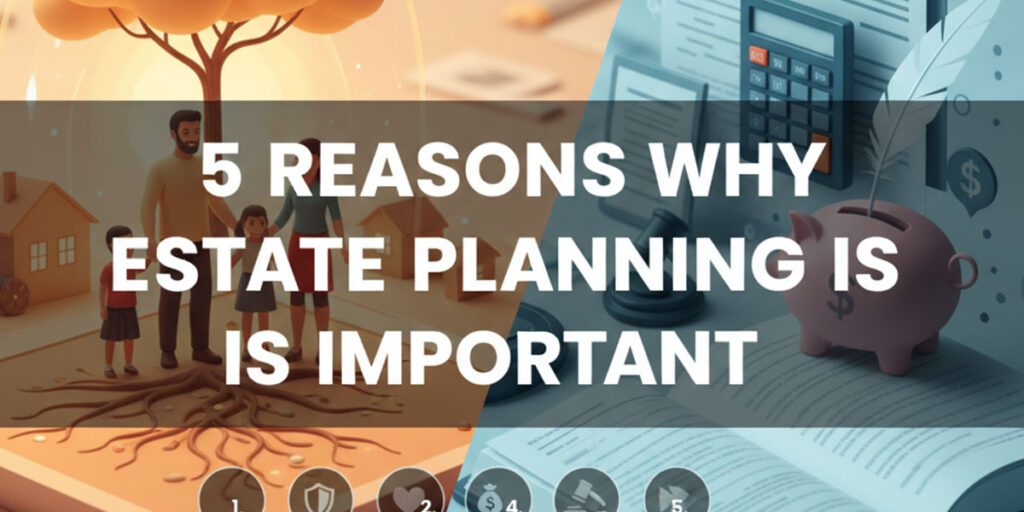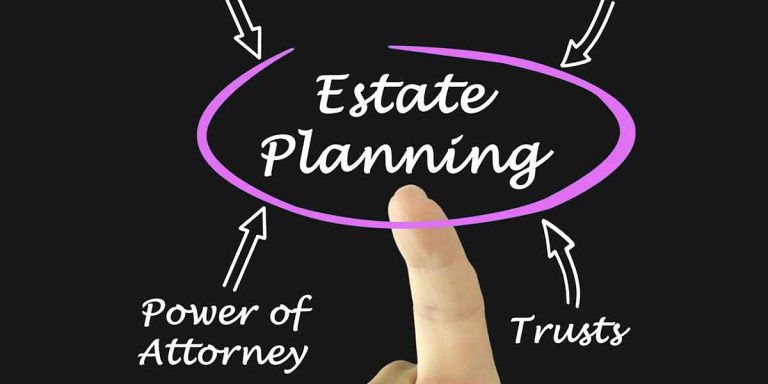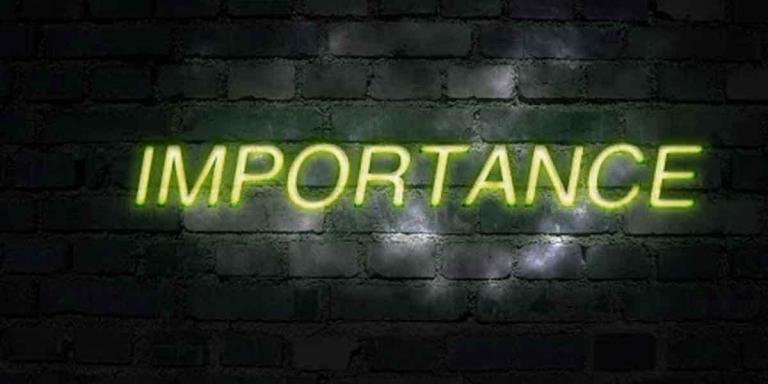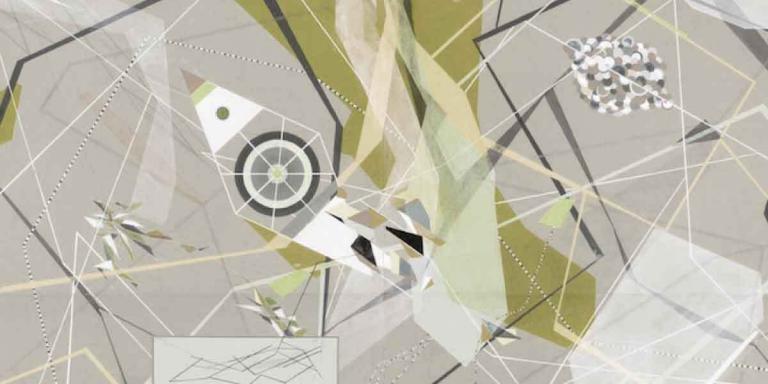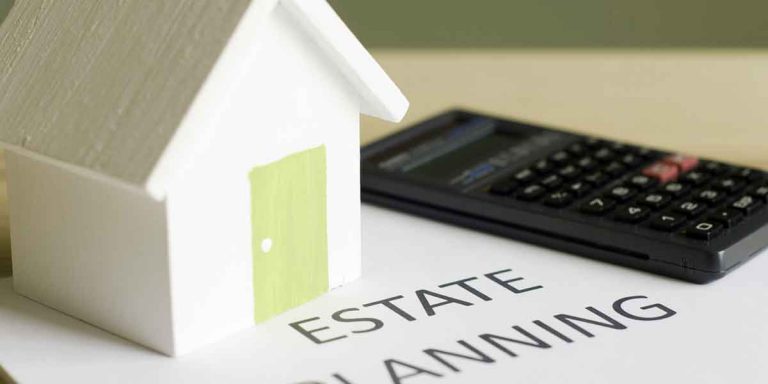The Top 5 Reasons Why Estate Planning is Essential for Every New Yorker
In my three decades as an estate planning attorney in New York, I’ve witnessed the profound impact—both positive and negative—that planning (or the lack thereof) can have on families. Many people view estate planning as a task to be deferred, a complex process reserved for the wealthy, or a grim conversation about death. This perspective, however, misses the fundamental truth: estate planning is not about death; it is about life. It is about actively choosing to protect the people you love, preserve what you have built, and ensure your wishes are honored, no matter what tomorrow brings.
Estate planning is a powerful act of love and responsibility. It is your opportunity to write your family’s future chapter with care and foresight, rather than leaving it to chance or the rigid dictates of state law. A robust plan ensures that your intentions, values, and hard-earned assets are safeguarded, providing peace of mind for you today and security for your loved ones tomorrow. The question is not *if* you need an estate plan, but *why* it is so critically important right now.
At Morgan Legal Group, we guide New Yorkers through the entire estate planning process, translating complex legal concepts into clear, actionable strategies. This comprehensive guide will illuminate the top five compelling reasons why estate planning is not just beneficial, but absolutely essential for every individual and family in New York. We aim to equip you with the knowledge to make informed decisions and secure your legacy. For personalized guidance, please contact our firm for a consultation.
Reason #1: To Protect and Provide for Your Loved Ones
This is, without a doubt, the most powerful and personal reason to engage in estate planning. Your family is your greatest legacy. Estate planning allows you to ensure their well-being, both financially and personally, even when you are no longer there to do so directly. It is your final act of care, designed to mitigate chaos and provide security during a time of immense grief.
Ensuring Guardianship for Minor Children
For parents of minor children, this is arguably the single most critical aspect of estate planning. If both parents pass away without a will, the decision of who will raise your children falls to the New York Surrogate’s Court. The judge will choose based on what they perceive to be the child’s best interest, which may not align with your wishes at all. This public, potentially contentious process can be traumatic for children already reeling from loss.
Your Last Will and Testament is the only legal document where you can formally nominate the person or couple you wish to appoint as the legal guardian of your minor children. While the court has final say, your nomination carries immense weight and is almost always honored, provided the nominee is suitable. This choice brings immeasurable peace of mind.
Directing Inheritances for Specific Needs
A well-crafted estate plan ensures your assets are distributed exactly as you intend, taking into account the unique needs of each beneficiary.
- Children’s Financial Maturity: Instead of children receiving their entire inheritance at age 18 (which is often too young for financial responsibility), a trust can hold and manage funds, distributing them at specific ages or milestones you define.
- Family Members with Special Needs: A direct inheritance can disqualify a loved one with a disability from crucial government benefits like Medicaid or Supplemental Security Income (SSI). A Special Needs Trust (SNT) allows you to provide for their ongoing care and quality of life without jeopardizing their eligibility.
- Blended Families: In second marriages, a plan can ensure your current spouse is provided for, while also preserving an inheritance for your children from a previous relationship, preventing potential conflicts.
Preventing Family Disputes
Money, unfortunately, often brings out the worst in people, especially during times of grief. An ambiguous or nonexistent plan can ignite bitter family feuds over who gets what, who is in charge, and even who gets sentimental items. Clear, legally binding instructions minimize uncertainty and reduce the likelihood of costly and emotionally devastating litigation. Our family law experience shows that clear boundaries prevent conflict.
Reason #2: To Plan for Your Own Incapacity
Estate planning is commonly associated with death, but a substantial portion of its power lies in protecting you while you are still alive. What would happen if a sudden illness, accident, or the natural progression of age rendered you unable to make financial or medical decisions for yourself? This is a reality that far too many New Yorkers face without adequate protection.
Avoiding Court-Ordered Guardianship
Without proper legal documents, if you become incapacitated, your loved ones cannot automatically step in to manage your affairs. They would have to petition the New York Supreme Court to appoint a guardian for you under Article 81 of the Mental Hygiene Law. This process is:
- Public: Your personal financial and medical information becomes part of a public court record.
- Expensive: It can involve multiple attorneys (for you, your family, and the court-appointed guardian), all paid from your assets.
- Time-Consuming: The legal process can take months, during which time your assets may be frozen, and bills might go unpaid.
- Loss of Control: A judge, not you, decides who makes decisions for you and how your assets are managed.
Empowering Your Trusted Agents with Advance Directives
A comprehensive estate plan provides critical documents that allow you to choose, in advance, who will act on your behalf if you cannot.
- Durable Power of Attorney: This document appoints an agent to manage your financial and legal affairs. They can pay bills, manage investments, sell property, and file taxes—all without court intervention.
- Health Care Proxy: This document appoints an agent to make medical decisions for you, ensuring your healthcare wishes are honored when you cannot communicate them yourself.
- Living Will: This document expresses your wishes regarding end-of-life medical treatment, providing invaluable guidance to your healthcare agent.
These documents provide peace of mind, knowing that your care and finances are in the hands of someone you trust, bypassing the costly and intrusive court system. Our elder law services are designed to address these critical incapacity concerns.
Reason #3: To Minimize Taxes, Fees, and Delays
One of the practical benefits of effective estate planning is the ability to streamline the transfer of your assets, reducing unnecessary costs and administrative burdens. Without a plan, your estate could face avoidable expenses and lengthy legal processes, diminishing the inheritance you intend to leave for your beneficiaries.
Avoiding the Probate Process
Many people assume a will avoids probate. This is a critical misconception. A will is the document that *directs* the probate process. Probate is the court-supervised procedure to validate your will, pay debts, and distribute assets. It can be:
- Time-Consuming: In New York, especially in busy Surrogate’s Courts like those in New York City, probate can easily take 7-18 months, or even longer for complex estates or those with disputes.
- Expensive: Costs include court filing fees, executor commissions, attorney’s fees, and appraisal fees. These expenses are paid from your estate, reducing what passes to your heirs.
- Public: Your will and an inventory of your probate assets become public records, accessible to anyone.
A well-funded Revocable Living Trust, by contrast, allows assets to be distributed privately, efficiently, and without court intervention, saving substantial time and money.
Minimizing Estate Taxes
While federal estate tax thresholds are quite high, New York State has its own estate tax. For deaths occurring in 2024, if your New York taxable estate exceeds $6.94 million, your estate could be subject to significant state estate taxes. More importantly, if your estate is even slightly above this threshold, the entire estate (not just the amount over the threshold) can become taxable due to the “cliff” effect, costing your family hundreds of thousands of dollars.
An experienced estate planning attorney can implement strategies to minimize or even eliminate these taxes through techniques such as:
- Marital Deduction Planning: Utilizing strategies for married couples to maximize tax efficiency.
- Irrevocable Trusts: These can remove assets from your taxable estate.
- Gifting Strategies: Strategic use of annual exclusion gifts.
Early planning is key to effective tax mitigation, ensuring more of your wealth goes to your family, not the government.
Reason #4: To Protect Your Assets from Long-Term Care Costs
This is a growing concern for many New Yorkers and a reason why elder law planning has become indispensable. The cost of long-term care—whether in a nursing home or through extensive home care—is astronomical. In areas like Long Island, nursing home care can easily exceed $180,000 per year. Without proactive planning, a lifetime of savings can be wiped out, leaving little or nothing for your loved ones.
The Threat of Medicaid Spend-Down
Many people mistakenly believe Medicare will cover long-term care. It does not cover custodial care. Instead, most individuals must rely on Medicaid. However, Medicaid has strict asset and income limits. To qualify, you must “spend down” nearly all of your assets to meet these limits. This means your nest egg, intended for your family, could be entirely consumed by nursing home bills. Furthermore, Medicaid has a 5-year “look-back” period. If you transfer assets within five years of applying for Medicaid, you will be penalized, meaning you will be ineligible for benefits for a period of time, and still have to pay for care out of pocket.
Proactive Solutions: The Time to Act is Now
The only effective way to protect your assets from long-term care costs is through strategic, advanced planning. This is where the expertise of an elder law attorney is crucial. Strategies include:
- Medicaid Asset Protection Trust (MAPT): This is an irrevocable trust designed to hold assets (like your home and savings) so they are not counted for Medicaid eligibility, provided the trust is established and funded at least five years before you need care. You retain the ability to live in your home and receive income from the trust.
- Long-Term Care Insurance: This can cover the costs of care, but it must be purchased while you are still healthy enough to qualify.
Waiting until a crisis hits is often too late for effective asset protection. Our dedicated NYC elder law team can help you build this essential shield.
Reason #5: To Control Your Legacy and Values
Your estate plan is more than just a collection of legal documents; it is a reflection of your values, your priorities, and the legacy you wish to leave behind. It allows you to exercise control over how your life’s accomplishments continue to impact the world long after you are gone.
Ensuring Ethical and Charitable Giving
If you have specific charitable intentions, your estate plan is the mechanism to ensure those wishes are fulfilled. You can leave specific gifts to your favorite causes, whether it is an animal shelter, a university, or a community organization in Westchester. Without a will or trust, these donations will not happen.
Passing On Your Values (Not Just Valuables)
Through your will and trust, you can include specific instructions or ethical wills that convey not just who gets your money, but the values you hope they will embody. You can set conditions for distributions (e.g., for education, starting a business, or specific charitable acts) that reflect your priorities and encourage responsible behavior. This provides a mechanism for your influence to extend beyond your lifetime.
Your plan allows you to determine who will manage your digital assets, who will care for your beloved pets, and how your funeral and burial wishes should be carried out. It is a comprehensive statement of your final desires, ensuring that your life story concludes exactly as you would wish it to.
Conclusion: The Power of Proactive Planning
The reasons why estate planning is important are not abstract legal concepts; they are deeply personal and profoundly practical. From protecting your children and planning for your own care to preserving your wealth from taxes and long-term care costs, a well-crafted estate plan is an indispensable tool for every New Yorker. It replaces uncertainty with clarity, anxiety with peace of mind, and potential conflict with harmonious transition.
Do not underestimate the power of taking control of your future. The benefits of a thoughtfully designed estate plan far outweigh the perceived complexities of creating one. It is an investment in your peace of mind and your family’s security. At Morgan Legal Group, our experienced team, led by Russel Morgan, is dedicated to helping you build a comprehensive plan that reflects your unique circumstances and achieves your specific goals. Schedule a consultation today and take the essential step toward securing your legacy.
For more general information on estate planning principles, the U.S. Securities and Exchange Commission (SEC) offers valuable resources.

